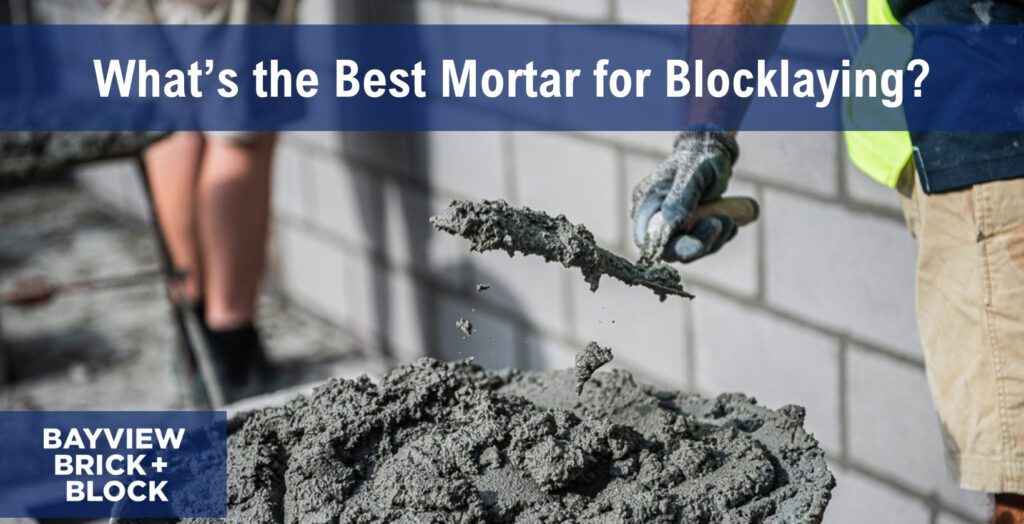The best mortar for blocklaying is the right mix of cement, sand, and water to achieve strong adhesion and durability. Different ratios suit various applications, from load-bearing walls to decorative finishes. Factors like compressive strength, flexibility, and weather resistance determine which blend performs best.
This guide explores common mortar types used by commercial blocklayers, their strengths, and how to select the right one for different block materials.
Different Mortar Types and Their Strengths
Selecting the right mortar is essential for strong, stable blockwork. Each mix has unique properties that affect strength, flexibility, and durability.
Common types include M4, M3, M2, M1, and masonry cement mortars, each suited to different applications.
M4 Mortar (Structural)
M4 mortar delivers the highest strength, making it ideal for load-bearing walls and reinforced structures. Its mix of cement, sand, and a lower water ratio creates a dense, durable bond. This mortar resists heavy loads and harsh conditions but lacks flexibility. Proper curing prevents cracking and maximises long-term performance.
M3 Mortar (General Purpose)
M3 mortar offers a balance of strength and workability, suitable for most residential and commercial projects. It bonds well with concrete blocks while allowing some movement to reduce cracking. Builders use it for walls exposed to moderate loads and weather conditions. Its slightly lower cement content makes it easier to work with than higher-strength mixes.
M2 Mortar (Lightweight Applications)
M2 mortar provides moderate strength with improved flexibility, making it a good option for non-load-bearing walls and partitions. This mix contains less cement, allowing easier handling and application. Its lower density helps reduce shrinkage cracks but may not withstand heavy loads. Internal blockwork and areas with minimal stress benefit most from this type.
M1 Mortar (Low Strength)
M1 mortar suits projects where minimal strength is required, such as temporary walls or minor repairs. A higher sand-to-cement ratio makes it easier to spread, though it lacks durability under heavy stress. It absorbs moisture more readily, which can affect long-term stability. Builders use it in sheltered areas where structural demands are low.
Masonry Cement Mortar
Masonry cement mortar is a pre-mixed option designed for ease of use and consistency. This blend contains cement, plasticisers, and other additives to improve workability and adhesion. Its flexibility helps reduce cracking in areas with minor movement. Common in bricklaying, it provides a reliable bond for various masonry materials.
Want to know how long does blockwork take to cure? Read our blog for more details.
Choosing the Right Mortar for Various Block Materials
Block materials vary in density, porosity, and strength, influencing the type of mortar needed for a reliable bond. Harder blocks demand higher-strength mixes, while softer materials require flexibility to prevent cracking. Matching the right mortar ensures durability and reduces long-term maintenance.
Concrete blocks perform best with M3 or M4 mortar, providing the necessary strength for structural walls. These mixes support heavy loads while resisting moisture and weathering. Lower-strength options may work for non-load-bearing applications, but using the correct ratio prevents issues like joint failure or shrinkage.
Lightweight and aerated blocks absorb water quickly, requiring a mortar that retains moisture during curing. M2 mortar allows some flexibility, reducing the risk of cracks caused by shrinkage or movement. Masonry cement mortar is also suitable, improving adhesion while making the application process smoother.
Learn how to lay blocks by reading our blog today.

